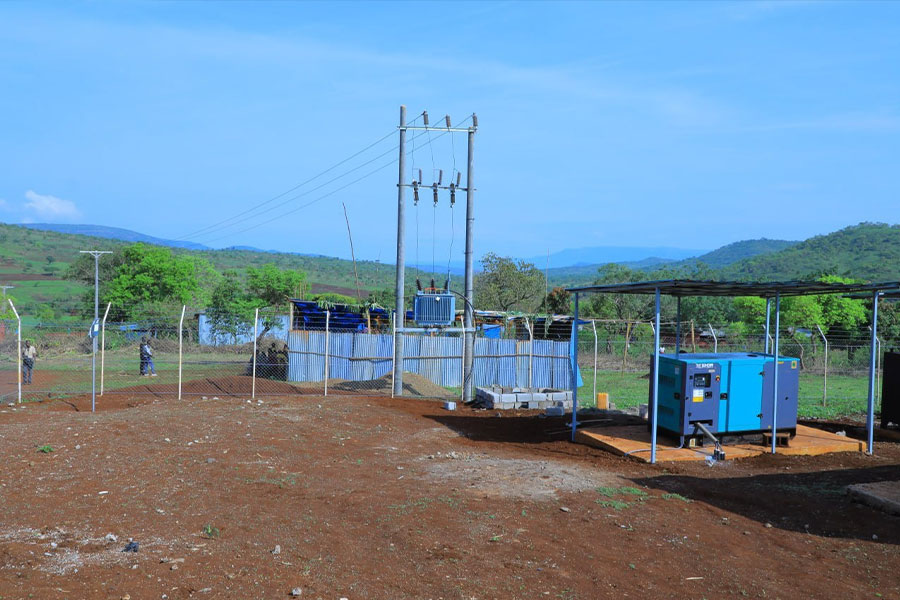
Apr 20 , 2019
By BERHANE HAILEMARIAM ( FORTUNE STAFF WRITER )
Ethiopia has drafted its first ever seed policy that will administer the whole seed value chain from production to distribution with the aim of ensuring a timely and quality supply of seeds to farmers.
Drafted by a task force composed of experts from the Ministry of Agriculture and the Ethiopian Development Research Institute over the past two years, the policy was submitted for approval to the Council of Ministers two months ago.
The policy covers the activities and involvement of stakeholders in the processes of variety development, production and distribution to smallholder farmers.
“The policy will attempt to rectify challenges faced by smallholder farmers in getting quality seeds in a timely fashion,” said Tefera Zeray, Seed Unit Coordinator at the Ministry of Agriculture.
During the drafting process, the task force considered the experiences of India, Germany, Indonesia, Vietnam and Kenya as a reference point.
The policy aims at enhancing productivity, assuring biodiversity conservation, maintaining seed security, modernising and developing a globally competent seed industry by giving special emphasis to the private sector, according to the draft policy.
"It will enable the country to become self-sustained in seed supply, substitute seed imports and generate income from the export of seeds," reads the draft policy.
Agricultural data and analysis show that the improved seeds help farmers to increase productivity up to 40pc.
Even though the economy of the country depends mainly on agriculture, with 80pc of the population considered agrarian, Ethiopia's use of improved seeds is estimated to be less than 20pc. However, the country has improved the supply of improved seeds from 551,000ql in 2017 to 768,000ql the following year.
The improved seeds are produced and supplied by five public enterprises, 45 private domestic companies, 14 unions, 150 cooperatives and a few national private seed companies, including research institutions. The five enterprises cover 70pc of seed supply at a national level, while seed unions and private suppliers cover 20pc and 10pc of the supply, respectively.
Participation of the private sector in improved seed production and supply is in its infancy, according to Mulugeta Enki, the secretariat of the Ethiopian Seed Association. The Association has 36 members including individuals, cooperatives and public institutions engaged in public and private seed production, distribution and trade.
"Over a third of seed varieties are released and supplied by public enterprises," Mulugeta told Fortune.
As of 2017, the country released a total of 1,198 varieties of seeds, of which 421 are cereal crops, where 223 and 111 are pulse and oil crops, respectively. There are also more than 233 tubers, roots and vegetable seeds.
Ethiopian Seed Supply Corporation, one of the five domestic suppliers, was established in 1978 and operated for three decades as the sole seed supplier.
The other four seed enterprises are located in Oromia, Amhara, SNNP and the Somali regional states. The five enterprises have their own lands totaling 38,000ha to produce the seed by growing crops on their farms. Oromia Seed Enterprise possesses the largest area at 28,000ha.
Hussien Mohammed (PhD), a lecturer and researcher for more than a decade in Hawassa University's School of Plant & Horticultural Science, sees the new policy from the perspective of ensuring food security by increasing productivity.
"The policy will also help the country conserve and regulate its endangered indigenous crop seeds,” he said.
PUBLISHED ON
Apr 20,2019 [ VOL
20 , NO
990]

Commentaries | Apr 11,2020

Radar | Feb 16,2019

Radar | Dec 11,2021

Radar | Apr 08,2024

Radar | May 31,2025

Dec 22 , 2024 . By TIZITA SHEWAFERAW
Charged with transforming colossal state-owned enterprises into modern and competitiv...

Aug 18 , 2024 . By AKSAH ITALO
Although predictable Yonas Zerihun's job in the ride-hailing service is not immune to...

Jul 28 , 2024 . By TIZITA SHEWAFERAW
Unhabitual, perhaps too many, Samuel Gebreyohannes, 38, used to occasionally enjoy a couple of beers at breakfast. However, he recently swit...

Jul 13 , 2024 . By AKSAH ITALO
Investors who rely on tractors, trucks, and field vehicles for commuting, transporting commodities, and f...

Jun 28 , 2025
Meseret Damtie, the assertive auditor general, has never been shy about naming names...

Jun 21 , 2025
A well-worn adage says, “Budget is not destiny, but it is direction.” Examining t...

Jun 14 , 2025
Yet again, the Horn of Africa is bracing for trouble. A region already frayed by wars...

Jun 7 , 2025
Few promises shine brighter in Addis Abeba than the pledge of a roof for every family...